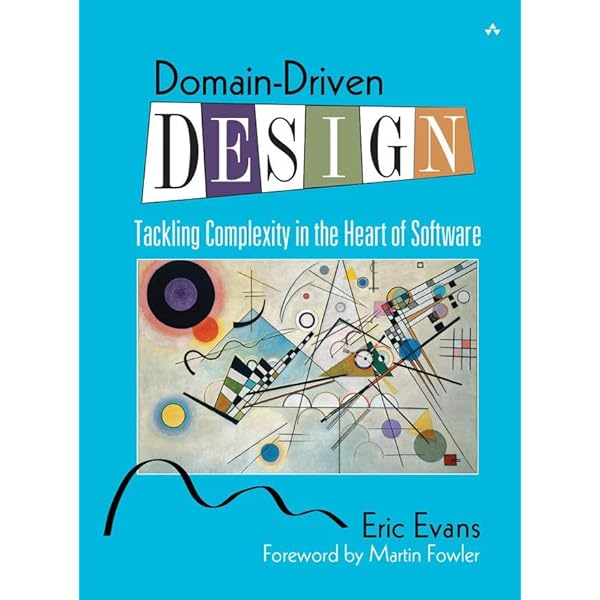 In today’s rapidly evolving tech industry, knowledge is power, and staying ahead of the curve is crucial for success. If you’re looking to expand your understanding of software business strategies, enhance your leadership skills, or gain insights from industry experts, you’re in the right place. In this article, we will explore some of the best software business books that provide valuable guidance, practical tips, and real-world examples to help you navigate the intricacies of the software industry.
In today’s rapidly evolving tech industry, knowledge is power, and staying ahead of the curve is crucial for success. If you’re looking to expand your understanding of software business strategies, enhance your leadership skills, or gain insights from industry experts, you’re in the right place. In this article, we will explore some of the best software business books that provide valuable guidance, practical tips, and real-world examples to help you navigate the intricacies of the software industry.
How to select the best software business books
Depending on your interests, objectives, and areas of interest, choosing the best software business books might be a difficult and deeply subjective process. Before reading software business books, be sure to define your goals. Are you seeking advice on how to launch a software company, enhance your leadership abilities, discover software development processes, or get knowledge of marketing and sales? You can reduce your alternatives by determining your aims.
Find books by authors who have knowledge of and experience with the software industry. Think of well-known software entrepreneurs, influential figures in the field, and knowledgeable professionals. Pay attention to respected publishers that focus on publishing books in the software sector as well.
Read evaluations and suggestions from reliable sources, including industry specialists, experts in the software sector, and reliable book review websites. These can offer perceptions into the caliber and applicability of the literature you are thinking about. You should take the book’s publishing date into account because the software business is changing.
While more recent publications may offer insights into new trends, technologies, and market dynamics, timeless principles and concepts can still be useful. Because the software sector is diverse, take into account books that present various viewpoints and methodologies. This might assist you in developing a thorough awareness of the many facets of the software industry.
Best software business books
1. Facts and Fallacies of Software Engineering, by Robert Glass
The first book on our list is by Robert L. Glass, a well-known software engineer and author, titled “Facts and Fallacies of Software Engineering”. The book dispels widespread myths and provides a list of 55 truths and 10 fallacies about software engineering. It seeks to clarify the subject and dispel misconceptions that could obstruct efficient software development procedures.
When engineers are building your product, you will interact with them if your business utilizes technology. Glass provides the most crucial information about designing an application—as well as everything you should overlook—in this collection of case studies to ensure that your company gets off to the best possible start.
2. The Lean Startup by Eric Ries

The Lean Startup, written by Eric Ries, is a well-known business book that introduces the idea of the lean startup methodology. It entails a systematic approach to developing and launching successful businesses with minimal waste and maximum efficiency.
The Lean Startup presents a framework for swift, iterative business development, depending on verified learning and continuous experimentation to test and enhance ideas. It draws influence from Toyota’s lean manufacturing techniques. Even though most modern SaaS businesses use a similar set of methods, including MVPs, feedback loops, and unit economics, Ries’ concise, example-driven explanation of lean development is still worth reading.
For entrepreneurs, startup founders, and anybody involved in product development, “The Lean Startup” is a must-read. Ries’ strategy defies received knowledge and offers a methodical, disciplined framework for creating thriving, client-focused enterprises. The book provides helpful insights for managing the uncertainties of the contemporary corporate landscape by highlighting the significance of constant learning, experimentation, and adaptation. It is a helpful manual that can raise innovators’ chances of success while reducing waste of time and resources.
3. Crossing the Chasm by Geoffrey Moore

Geoffrey A. Moore’s highly regarded business book “Crossing the Chasm” concentrates on the difficulties of promoting and selling cutting-edge goods, and technology at the outset of consumer adoption. Moore discusses the concept of the “technology adoption life cycle,” along with tips for successfully negotiating the critical change from early adopters to mainstream consumers.
The “chasm,” which stands for the separation between the early adopters and the early majority, is the book’s primary idea. According to Moore, this is a crucial and difficult time for technology companies as they must close the gap and win universal acceptance from the market.
4. The Innovator’s Dilemma by Clayton M. Christensen

One of the best books for entrepreneurs is The Innovator’s Dilemma since it altered corporate America. It has remained a best seller for more than 10 years and caters to business owners, managers, and CEOs. It offers advice and business-related cautions. The “innovator’s dilemma,” which refers to the difficulties experienced by successful businesses when faced with disruptive innovation, serves as the book’s main idea.
A key text in the study of innovation and disruption is “The Innovator’s Dilemma”. It emphasizes the difficulties faced by established businesses and offers guidance on how to identify and react to disruptive developments. Christensen explores how management might help solve the innovator’s conundrum. He discusses how current management techniques might make it more difficult to identify and react to disruptive technologies. This includes a concentration on financial measures and reliance on consumer feedback. The book contends that in order to create and nurture disruptive innovations, businesses need to use various management strategies, such as independent business units or skunkworks.
5. The Hard Thing About Hard Things by Ben Horowitz

Ben Horowitz is uniquely qualified to discuss the challenges of growing a startup. He was one of the driving forces behind Netscape, a company that helped shape the internet as we know it today. He also developed Loudcloud, one of the first companies to adopt the software-as-a-service model, and Andreessen Horowitz, one of the most successful VC firms in existence.
The Hard Thing About Hard Things tackles a wide range of subjects, including software development, management, investing, and business sales, with Ben’s signature wit and candor. It’s a priceless and intensely engrossing book for any SaaS founder, chock full of heaps of practical advice and obvious Hip Hop connections.
It presents a straightforward, honest viewpoint on the difficulties and realities of leadership and entrepreneurship. Horowitz provides insights that can assist leaders in navigating challenging circumstances and coming to difficult decisions through personal anecdotes, actionable counsel, and lessons learned the hard way. For business owners, executives, and anybody else interested in the challenges of creating and running great firms, the book is an invaluable resource.
6. Zero to One by Peter Thiel

The main thesis of Thiel’s book is surprisingly straightforward: it’s simpler to imitate an existing business model than it is to develop a brand-new one that expands the universe from 1 to n. However, true innovation, the kind that creates billion-dollar businesses, entails shifting from a worldview of 0 to 1.
Peter Thiel is an expert in innovation as the co-founder of PayPal. He was also an early investor in Facebook, a partner in Y Combinator, and the founder/president/investor of a dozen additional companies. His book “On Creativity, From Zero to One,” provides a succinct synthesis of his knowledge and counsel for entrepreneurs who want to make a real difference in their industry.
7. Software Estimation: Demystifying the Black Art, by Steve McConnell
![Software Estimation: Demystifying the Black Art (Best Practices (Microsoft)) by McConnell, Steve 1st (first) Edition [Paperback(2006)] - aa | | Amazon.com.au | Books](https://m.media-amazon.com/images/I/41svLDmSz-L._AC_UF894,1000_QL80_.jpg)
Software estimation is the process of estimating the time, effort, and resources needed for software development projects. Steve McConnell’s book “Software Estimation: Demystifying the Black Art” covers the difficulties and best practices of this process. McConnell offers advice and thoughts on how to increase estimation accuracy based on his significant research and experience.
The book digs into the variables that affect software estimation, including project size, complexity, volatile needs, team experience, and resource availability. McConnell offers explanations on how to comprehend these elements and how they affect the precision of estimates.
8. Grit: The Power of Passion and Perseverance by Angela Duckworth
The book “Grit: The Power of Passion and Perseverance” by Angela Duckworth discusses the idea of grit—the combination of passion and perseverance—and its function in achieving long-term success. It is inspirational and thought-provoking. Duckworth offers insightful advice and useful tips for developing grit in people and organizations based on her studies and personal experiences. Building a startup from scratch is not always simple. However, Duckworth’s book explains how to use certain little difficulties and setbacks as learning opportunities to persevere and avoid significant pitfalls in the future.
The book is chock full with tales of people from all walks of life who have shown great grit in their endeavors. These tales offer striking illustrations of the transformational potential of tenacity and determination. Additionally, Duckworth offers doable advice for growing grit in both oneself and others, such as establishing clear objectives, adopting a development mindset, and looking for mentors and support systems.
9. Domain-Driven Design by Eric Evans

If you need to create a plan for your business rather than just one specific project, you might be unsure of how to do it without becoming bogged down in the details. Although a little technical, Evans patiently discusses where you must keep your attention throughout the process to make sure you complete the work on schedule and under budget. The breadth and depth of the topics covered in “Domain-Driven Design” is one of its advantages.
Evans looks at a number of ideas and strategies that can help structure and develop software systems. To provide clear communication and lower the possibility of misinterpretation, he introduces ubiquitous language. This fosters a shared understanding between engineers and domain specialists.
What are the best books on software companies management and product management?
There are many great books on software companies management and product management, especially the ones on our list. However, some other popular ones include:
- “Scrum: The Art of Doing Twice the Work in Half the Time” by Jeff Sutherland
- “Cracking the PM Interview: How to Land a Product Manager Job in Technology” by Gayle McDowell
- “Inspired: How to Create Tech Products Customers Love” by Marty Cagan
What are some must-reads for every programmer?
Here are some highly recommended books from programming experts in the industry:
- The Pragmatic Programmer: From Journeyman to Master by Andrew Hunt & David Thomas
- The Unicorn Project: A Novel about Developers, Digital Disruption, and Thriving in the Age of Data by Gene Kim
- Working Effectively with Legacy Code by Michael Feathers
- The Software Craftsman: Professionalism, Pragmatism, Pride by Sandro Mancuso
What books are useful to read as a mid-level developer?
Robert C. Martin’s “Clean Code: A Handbook of Agile Software Craftsmanship” focuses on writing clear, readable, and high-quality code. It discusses ideas, patterns, and techniques that can help you make your codebase easier to understand and maintain.
Erich Gamma, Richard Helm, Ralph Johnson, and John Vlissides’ famous book, “Design Patterns: Elements of Reusable Object-Oriented Software,” provides many design patterns that can address typical software design issues.
What are the most in-demand software engineering career options?
There are several in-demand career possibilities available in the field of software engineering. The demand for particular positions may change over time because of market developments and technological advancements. However, the following are some of the professions that are in high demand.
Full-stack developers may work on all facets of a software product because they specialize in front-end and back-end development. They are versatile and useful contributors to development projects because they can program in a variety of languages and frameworks.
Data scientists are experts at deciphering and analyzing complex data in order to draw conclusions and make data-driven decisions. They are experts in data visualization, machine learning, and statistical analysis. Data scientists are increasingly in demand as companies place more emphasis on making decisions based on data.
Designing, deploying, and maintaining cloud-based infrastructure and services is the area of expertise for cloud engineers. They are adept in deploying and scaling applications on the cloud and have expertise in cloud platforms like Amazon Web Services (AWS), Microsoft Azure, or Google Cloud Platform (GCP).
What are the skills required to be a software engineer?
Several essential talents are often necessary to succeed as a software developer. For example, it is essential to be proficient in at least one programming language. Languages like Python, Java, C++, JavaScript, and Ruby are frequently utilized. Writing clear, effective, and maintainable code is highly regarded. Effective coding requires a firm grasp of data structures and algorithms. Having a working knowledge of different sorting, searching, and graph traversal techniques facilitates the development of scalable and optimal software solutions. This also includes arrays, linked lists, trees, and graphs.
Will software engineering be a challenging field to study?
Dealing with intricate systems and issues is part of the software engineering process. Understanding complex algorithms, data structures, and design patterns is frequently necessary for developing software solutions. It can be challenging to navigate the complexities of software development and handle the complexity of big projects.
Software engineers frequently run with challenging issues that call for original thinking. It’s essential to be able to analyze situations and break difficulties down into their component parts. For locating and resolving problems in software programs, troubleshooting, and debugging abilities are also crucial.





